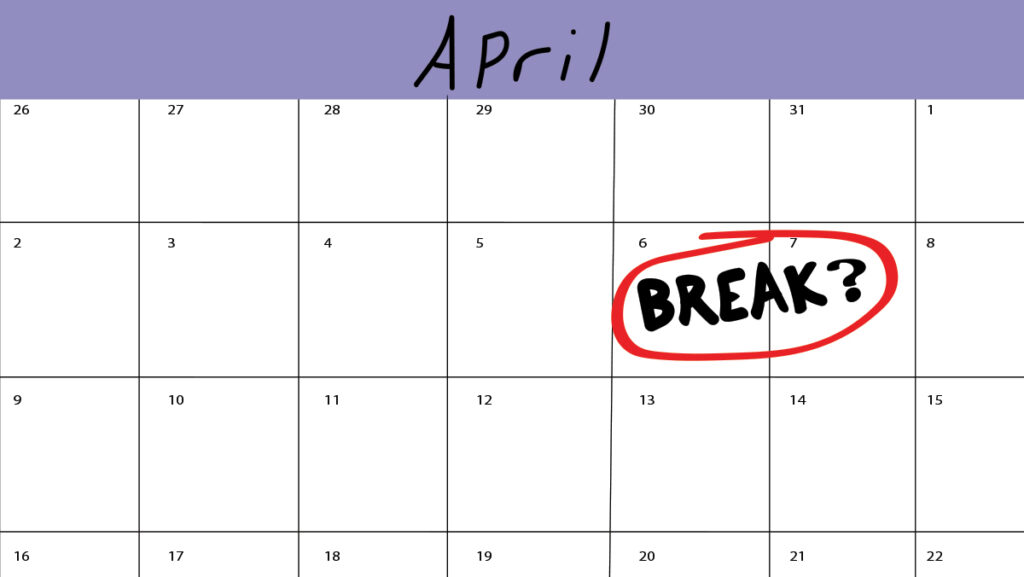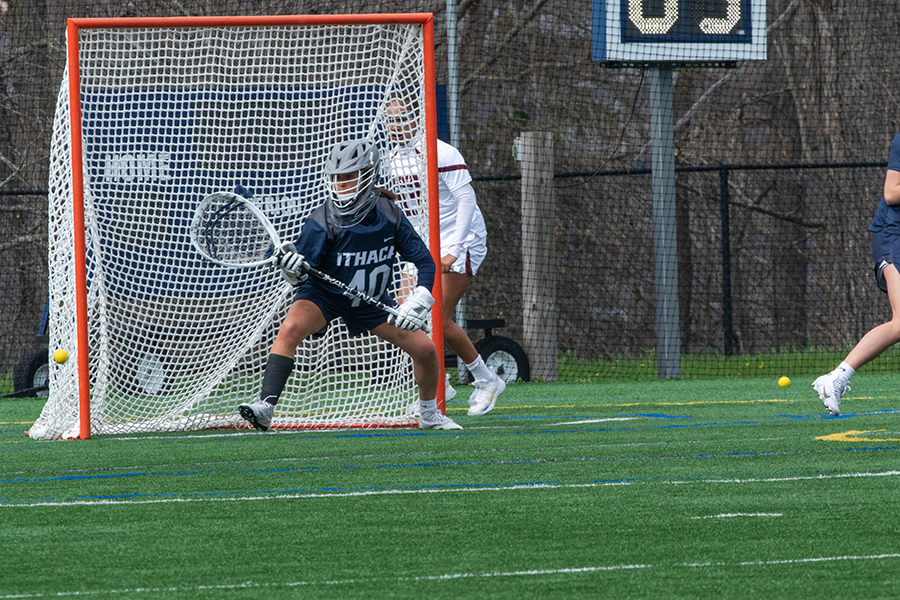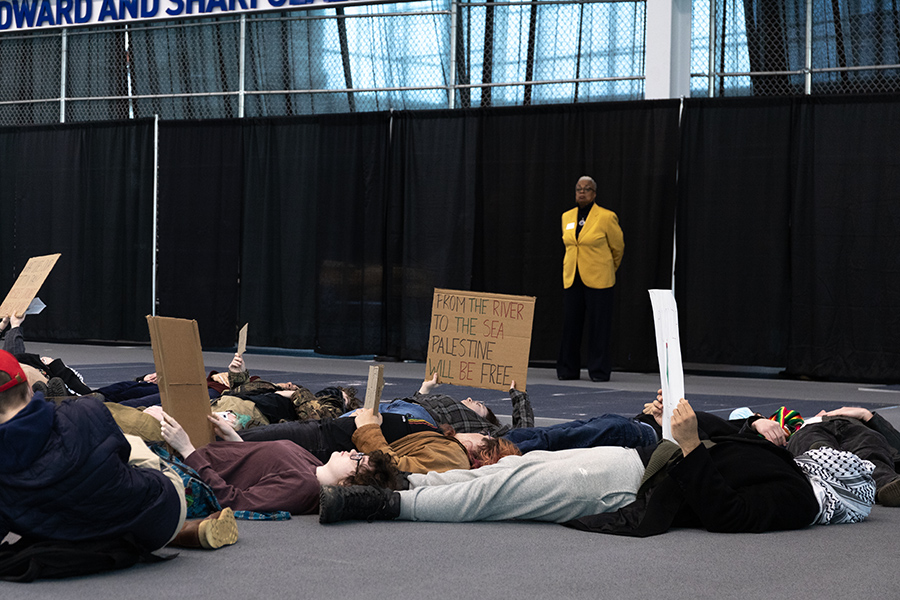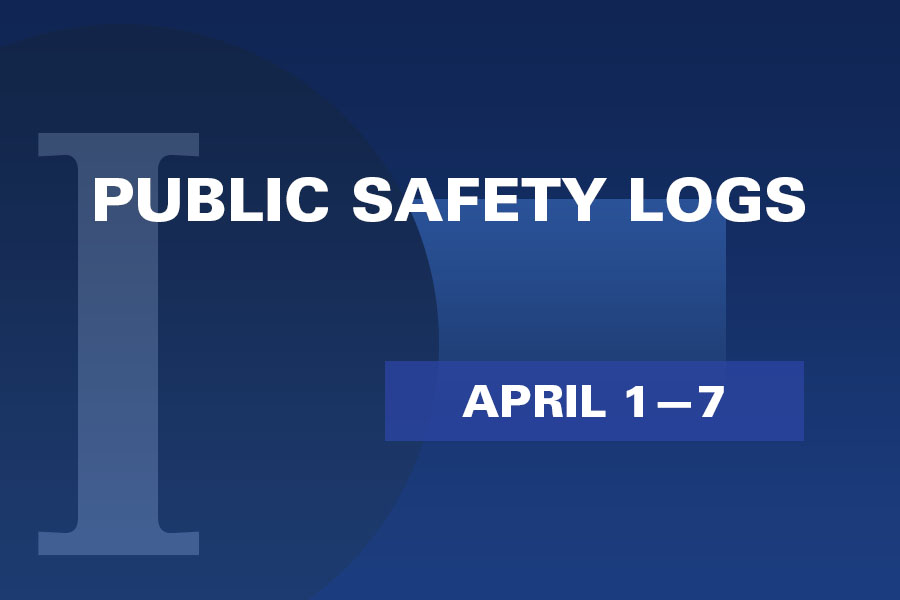In an Intercom message posted Feb. 19, Registrar Vikki Levine announced updates to Ithaca College’s academic calendar, which will be in effect from Fall 2023 onward.
Changes to the fall semester
According to the Intercom post, classes for the Fall 2023 semester will commence Wednesday, Aug. 23 instead of that Monday, which is when classes usually begin. Block I classes will end Oct. 16, after fall break. As a result, Block II classes will begin Oct. 18, two days later than they were originally scheduled.
Instead of Dec. 13, final exams will end at 10 p.m. Dec. 15 and final grades will be posted by 5 p.m. Dec. 21. According to Intercom, this will allow faculty to engage in orientation, Convocation and other related activities by adding five extra business days to their schedule prior to the beginning of classes in the fall. There will not be a reading day in Fall 2024 because of a weekend that falls between the first and last two days that finals are conducted. The Spring 2024 semester dates will remain the same.
Levine said the Academic Calendar Committee, a committee of faculty, students and staff from different departments, decided to make changes to the academic calendar to better cater to student and faculty needs. Levine said that according to New York state law, colleges must ensure that each semester follows a 15-week calendar.
“The goal of the academic calendar committee is to make sure that we are creating a calendar that adheres to all the regulations that we need to follow,” Levine said. “We realized that some of the things that we were doing and trying to shorten the calendar was not working for our students or our faculty, so we collectively made that shift.”
Changes to the spring semester
Spring 2024 will have a new break in April with two days off April 8 and 9, which Levine said is meant to imitate the fall break. According to the Intercom post, there will not be an April break in Spring 2025. Levine said this is because Martin Luther King Day falls on Jan. 20, 2025, which is a Monday.
“Everyone that’s in the academic calendar committee thought it was a really positive recommendation, [which] was, ‘How do we … [model] the fall break … [in the] spring to offer that wellness time for students,’” Levine said. “I think the wellness group is a great collaborative example … [of] student and faculty and staff mental health and how to tie that into the calendar.”
Brian Petersen, director of the Center for Counseling and Psychological Services, said the recommendation was made to the Office of the Registrar by a subcommittee of the college’s JED Campus Initiative based on the Healthy Minds Survey. Petersen said the survey took place in Spring 2021 and was issued by the Healthy Minds Network, a national mental health organization that specifically studies teenage and young adult mental health.
Petersen said the survey helped the JED Campus Initiative to create subcommittees targeted at planning specialized initiatives to tackle shortfalls that were highlighted in the survey results. Peterson said previous initiatives that have been implemented based on the results of the survey include Stop and Breathe week and, most recently, anxiety screening sessions.
Petersen said the next survey will take place in Spring 2025 and will help assess the effectiveness of JED initiatives.
Petersen said that while the academic calendar was not a shortcoming or lack that emerged in the survey results, it was an active initiative subcommittees wanted to work on.
“I don’t think it was a deficit,” Petersen said. “I think it was just something that we noticed … if the message is that we’re going to create these pockets of stress relief or downtime … that would sort of balance the semesters in terms of thinking actively about mental health and wellness and distress management.”
First-year student Duda Formoso said that she looks forward to the April break and that she can see it positively impact her academic career. Formoso is an international student and said she arrived on campus two weeks late because of visa issues, missing orientation and the first week of classes. Formoso said that the fall break helped her catch up and that the April break should have a similar effect.
“From my experience last semester –– my first semester here –– until fall break, I was, like, dying,” Formoso said. “I wasn’t taking care of myself. … But I think from my own experience, I know how it’s important to have a break to maintain our academic standard. So I think it’d be good.”
First-year student Yasmin Chloe Ramos Kuczynski said she also feels that the April break will help students take a break before they get back to their usual routines.
“I feel like this is a great change,” Kuczynski said. “I feel like definitely, we need this time off … because many students use the spring break week to enjoy time with their families, go back home and still study, but I feel like those two days [of April break] would eventually help them to get back into the academic mindset.”
Petersen said the timing of the break, which is scheduled for April, will help students cope better with academics as they approach the end of the semester.
“I think that especially as we come into April, everybody is beginning to think about finals and the seniors are thinking about graduation and there’s a lot of anxiety floating around,” Petersen said. “I think it’s good timing to do it in April and I think that in general, it’ll be well received.”
Changes to summer and winter sessions
Changes to the academic calendar were also made by the Office of Extended Studies, which offers courses to students in the summer and the winter.
Usually, summer at the college is divided into three sessions: the May session, or Maymester, Summer Session I and Summer Session II. According to the Intercom post, Maymester will no longer be offered in summer 2024 and onward to students unless it is needed for students to fulfill their course requirements. Eric Machan Howd, director of the Office of Extended Studies, said Maymester usually takes place for two weeks right after the spring semester ends. Machan Howd added that student advisers will be working with students to communicate whether or not they are eligible for future Maymester sessions.
“Maymester, in particular, is one of those sessions that is used by [the] education [department],” Machan Howd said. “They may place certain students into teaching situations during that time just for that two-week period. Again, those programs can still use that Maymester time if it is part of their standard offering, but we’re just not going to offer it as a standard offering to everybody else.”
Machan Howd said academic programs with certification courses can still utilize the piloted structure of shorter winter sessions if needed.
Machan Howd said that prior to 2020, the winter session was a single three-week-long session and that in 2021, the college tried offering the winter session as multiple sessions over several days. Machan Howd said the college reverted to a single three-week-long winter session after piloting the alternative structure because of administrative and student success issues.
“What we found is that having those shorter sessions where you have to fit a 14- or 15-week class in nine days, that puts a lot of pressure and stress on the student,” Machan Howd said. “It can impact student success because it’s so fast. … Also administratively, there are issues with the drop dates, because when you have a shorter session, the drop day comes much faster. … And really, you know, as learners, how can we really gauge what a class is going to be in just one–day worth of content?”








